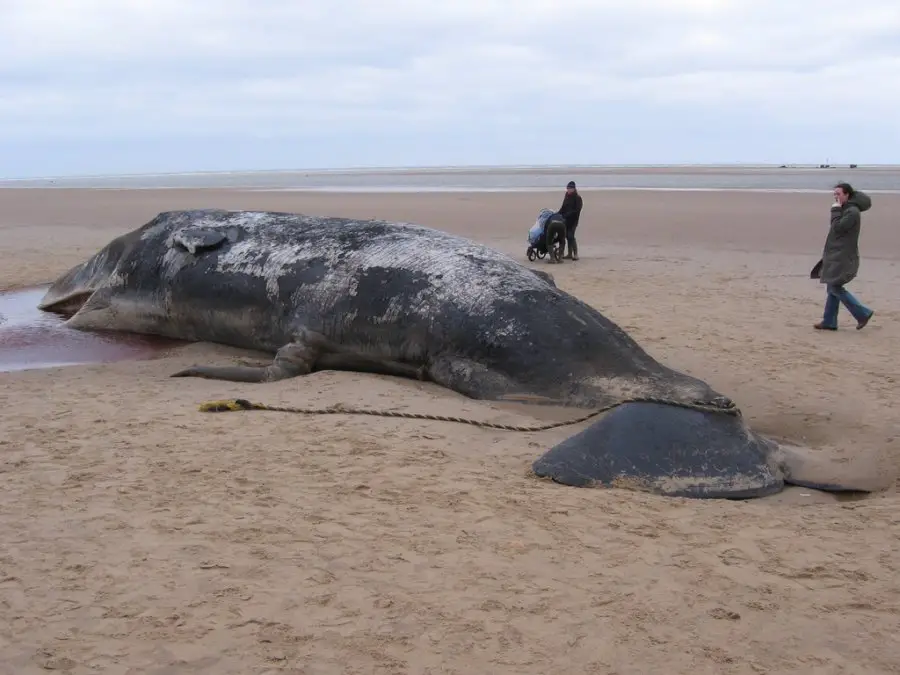Scientists Think They Know Why Naval Sonar Results In Mass Whale Beachings
Tags: News

Whales beachings have long been linked with underwater sounds caused by naval sonar- now scientists believe they have strong evidence that this is the case.
It’s important to note that there are two types of mass whale strandings, known as ‘Typical’ and ‘Atypical’.
Typical beachings occur when two or more live animals are stranded on the shore, at the same time and location.
‘Atypical’ cases are when at least two whales wash up within six days of each other and within a vicinity of 74 kilometers.
Typical strandings could potentially be caused by fleeing from a predator or through factors such as disorientation or sickness.
It’s the ‘Atypical’ cases which have been generally been associated with underwater sonar sound. And it’s these instances which scientists affiliated to the Royal Society have looked into.
Back in the 1960s, navies began to use underwater sound waves called mid-frequency active sonar (MFAS) to detect submarines.
Measuring at 235 decibels, the sounds put out by MFAS are extremely loud . By comparison, the world’s loudest rock bands reach levels of 130 decibels.
Subsequent to the development of the submarine detecting sonar in the 60’s, a substantial number of mass strandings of beaked whales were recorded – 121 in 44 years in regions including France, Italy, the US, and the Bahamas.
Many of the beached beak whales were found in areas where US Navy and NATO training exercises had occurred, according to this report.
What is the evidence that sonar harms whales?
The conclusions were drawn from autopsies which were performed on dead whales.
The scientists believe the whales died through haemorrhaging and damage to vital organs, due to nitrogen bubbles in their blood.
The nitrogen bubbles are thought to be caused by sudden changes to pressure as the whales rapidly change their diving patterns during the panic to escape the sonar sounds.
This may well explain why the whales sometimes wash up separately, but within kilometers of each other.
It’s very similar to the potentially fatal decompression sickness which human divers can suffer from.
“The bubble gas composition was analysed, demonstrating that the gas came from nitrogen (N2) saturated tissues, as in DCS [decompression sickness]. This was revealed from a single beaked whale that stranded in temporal and spatial association with a military exercise, suggesting that single stranding could also result from MFAS [mid-frequency active sonar] use,” read part of the scientist’s report.
One might expect a water-based mammal such as a whale to be more adaptable. But it’s the stress and randomly chaotic diving patterns which cause the damage.
“In the presence of sonar they are stressed and swim vigorously away from the sound source, changing their diving pattern.” lead author Yara Bernaldo de Quiros of the Health at the University of Las Palmas de Gran Canaria, Spain, told AFP
“The stress response, in other words, overrides the diving response, which makes the animals accumulate nitrogen. It’s like an adrenalin shot.”
More studies and testing may be required before the findings can prove fully conclusive. But the report certainly makes a strong case.
Read more: Study Suggests Ocean Creatures Have Been Protecting Humanity From Viruses
Photo by form PxHere
Leave Comment: